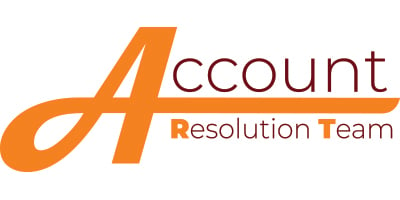Debt collection is a tough field. It takes a robust spirit to see the matter through. Though we have a clear objective, the road is not level and smooth. As there is both money on the table and resistant debtors in the chairs, to be successful, we as collectors need a careful strategy. When approaching each account before the journey even begins, we are reminded of the words of Gene Kranz, the flight director of Apollo 13; “Let’s work the problem, people.”
Our clients will sometimes agree to take partial payments or set up a repayment plan with their debtors. Though this is not ideal, it is important to remember that getting some payment is better than no payment at all. That’s not to say the debtor should get the better deal. If negotiations with a debtor have indeed reached the point where you are considering a partial payment or a payment plan, it is all the more important to realize that we use pre-planned techniques for better outcomes. Remember, we are going to work on the problem and, find a solution!
- We know going in that every interaction is a negotiation.
We begin every communication knowing that it is not a simple ask and receive, nor a more challenging demand and collect, but rather a complex negotiation. Armed with this idea, going into the process gives us the upper hand at the start.
- Sometimes the first step is merely a gentle reminder.
This is also known as soft collections or early-out collections. Occasionally, our partners have debtors who may have honestly forgotten about a debt, and now it’s 30 days late. Reminding the debtor of the details of the debt can bring in those whose debt has slipped their mind and those who have turned over a new leaf and will want to take care of their debt expediently. The best part about this is that it is a very inexpensive type of collection. You pay so little in commissions, that sometimes it actually saves you money by hiring an agency to do what is taking valuable time away from your staff.
- We have to be equipped with accurate facts.
Just as it is easier to argue politics with Uncle Fred at Thanksgiving when you have truth on your side, beginning each communication with debtors armed with accurate information will invite synergy into what can be a contentious interaction.
- We always stay polite and professional.
This seems self-evident, yes. The reality is that being people ourselves, we are not immune to vocal abuse. People tend to lose their temper when they are being yelled at or insulted, but that will get us nowhere, not to mention it is a direct violation of the Fair Debt Collections Practices Act. We always remember that the goal is to get the debtor to pay as much as they can. This outcome is far more likely when we practice professional empathy, focusing on a solution rather than berating them about the problem.
- We remain calm.
Mantras are not just for meditation. Here’s one for this situation: “Every time you are tempted to react in the same old way, ask if you want to be a prisoner of the past or a pioneer of the future.” – Deepak Chopra
A pioneer of the future stares excuses straight in the face, remains calm, and finds solutions.
- Approach negotiations as equals.
Remember Sirius Black? He said something wise once about how we treat certain people is saying a lot about who we are. It can be easy during negotiations to take on a supercilious tone when we forget our main objective. It is crucial to assuage the anxieties projected by the debtor. Subconsciously, their feelings of inferiority stemming from having to face their debt shade every phone call. This effect will not spur payment, only spite. We approach each interaction as a person sympathetic to the debtor’s plight. Equality, not superiority.
- Being pragmatic.
The research that we do will sometimes illuminate the fact that the debtor truly does not have the ability to make a payment. We have to be realistic about what we can get. Even The Rock can’t squeeze blood from a rock.
- Our message is crystal clear.
While politeness and professionalism should be the constant in our voice, there is no point in sugarcoating the situation. Our expectations of the debtor are clear and concise, and easy to understand. We don’t downplay the reality of the situation or make things needlessly complicated. This only frustrates the debtor and leads to a breakdown in communication. But again, we remain calm and polite. We aren’t trying to be their best friend, but we are projecting that we want to help them protect their credit rating by getting out of debt.
- Have an iron floor.
As old as human civilization is the art of bartering. The key to a successful trade is to have a concrete minimum. Just as Nana begins her approach to buying that couch with a number much lower than she actually expects to pay, we try to go into each negotiation with a number cemented in mind about how much under the amount owed our client will accept.
- We initiate a conversation.
Everyone wants to be heard. As soon as the facts of the debt are clearly laid out to the debtor, we make space for the debtor’s voice. We try to make a personal connection while remaining committed to recovery. This will do multiple things. Not only will it allow us to gauge how receptive the debtor is to a potential deal, it can also pave the way to a solution. We allow the debtor to comment, be receptive to a discussion, and listen to their story. They want to be heard. This alone can sway the outcome positively.
- “What happened?”
Debtors almost always want to tell their story. To reiterate 10, hearing what the debtor has to say is hugely important to our strategy. The debtor needs us to ask what happened. By them recognizing that we care about the circumstances and not just the bottom line, we can soften even the most obstinate case. We strive to really listen to their answer.
- Ask for a good-faith gesture.
What can they pay right now? What amount would they be willing to put towards their debt today? This will frequently garner some immediate success.
- Don’t torch the bridge!
If at the end of our first negotiation efforts the debtor is simply not capable of making any payments at that time, we try to solidify a solution for the near future. For debtors who truly want to resolve the debt, that bridge can still be crossed at a later date.
- Follow up.
After the agreement is in place, our superior debt collection technology will aid us in keeping the negotiations on track. On our watch, this debtor will not forget their debt again. This step is just as important as every other one in this marathon.
- Holding fast to the deal.
If we tell the debtor that they will be reported to the credit bureau or pursued for legal action by a certain date, we carry out that on time. If we delay, our resolve looks weaker. That, in turn, will weaken the debtor’s commitment to hold up their end of the deal. We have to stay strong. Follow through. Work the problem. Do what we say we are going to do.
Debt collection is not an easy process for companies to do on their own. Enlist the help of a dedicated, professional agency that is on your side.
Depend on Account Resolution Team for debt recovery supported by over 70 years of experience. Be sure to follow us on Facebook, LinkedIn, and Twitter, and see our other blogs at: www.accountresolutionteam.com

